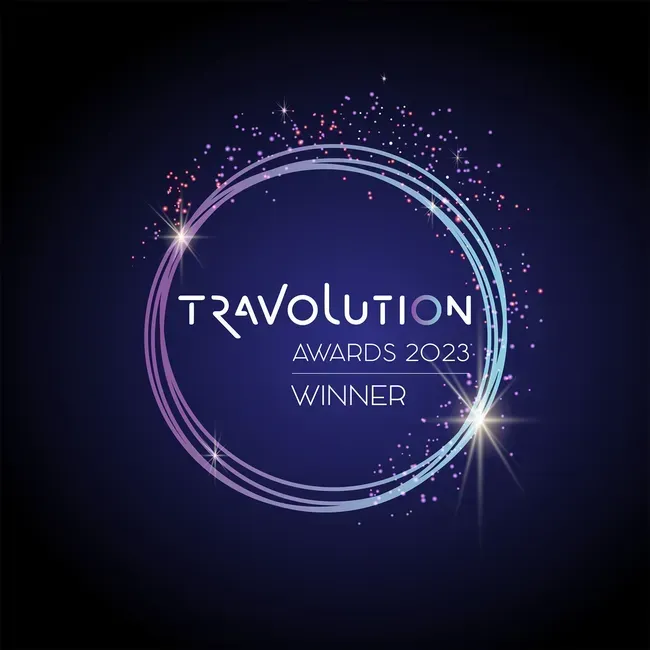Can The Integration Of AI Transform Bookable Websites For Travel Agents
You may be wondering how the integration of artificial intelligence can revolutionise the way travel agents operate their bookable websites. With AI, you can enhance user experiences, streamline booking processes, and optimise customer service through personalised recommendations . However, while the benefits are substantial, there are potential risks regarding data privacy and reliance on technology that you should consider. This post examines into how AI technologies can reshape your website and provide insights on navigating these changes effectively.

Key Takeaways:
- Enhanced Personalisation: AI can analyse traveller preferences, enabling travel agents to offer tailored recommendations.
- Improved Efficiency: Automating routine tasks allows agents to focus on client interactions and complex queries, streamlining service delivery.
- Dynamic Pricing: AI can facilitate real-time price adjustments based on demand, ensuring competitive offerings for clients.
- Data-Driven Insights: Integrating AI provides valuable analytics on customer behaviour, assisting agents in refining their marketing strategies.
- 24/7 Customer Support: AI-powered chatbots can offer round-the-clock assistance, improving customer service and satisfaction.
Understanding AI and Its Current Applications
A comprehensive understanding of Artificial Intelligence (AI) is crucial as it continues to evolve and integrate into various sectors, including travel. Currently, AI is being employed to enhance user experiences, automate processes, and provide data-driven insights to improve business outcomes.
Definition of AI in Travel
Before delving deeper, it’s important to understand that AI in travel encompasses a range of technologies designed to replicate human intelligence. This includes tools that analyse large datasets to forecast trends, recommend personalised experiences, and streamline bookings, ultimately enhancing your travel operations.
Existing AI Tools for Travel Agents
Applications of AI in the travel industry are varied, with numerous tools available to support travel agents. From chatbots that handle customer inquiries to advanced analytics platforms that assess market trends, AI tools can significantly streamline your workflows and improve customer satisfaction.
In addition to chatbots, other powerful AI tools include predictive analytics, which can forecast travel patterns, and dynamic pricing algorithms, allowing you to offer more competitive rates. By employing these tools, you can enhance your services while reducing operational costs. The use of AI can lead to greater efficiency and a more personalised customer experience, ultimately increasing client loyalty. However, you must remain aware of the potential challenges, such as data privacy concerns and the need for ongoing training to keep up with technological advancements. Embracing AI is crucial for staying competitive in the evolving travel landscape.
Benefits of Integrating AI into Bookable Websites
Clearly, integrating AI into bookable websites can significantly enhance the performance and efficiency of travel agents. By automating various processes and providing valuable insights, AI helps create a more streamlined, responsive, and personalised experience for users. This not only optimises booking procedures but also ensures that customers receive tailored recommendations, leading to increased satisfaction and loyalty.
Enhanced User Experience
One of the most significant advantages of AI integration is the enhanced user experience it offers. With AI-driven chatbots and virtual assistants, users can easily access information and receive assistance in real-time, making their booking process smoother and more intuitive.
Data-Driven Insights for Personalisation
Personalisation is another powerful benefit of AI integration. Leveraging data analytics, AI can analyse user behaviour and preferences, enabling you to deliver tailored recommendations that resonate with your customers. This results in a shopping experience that feels uniquely curated for each user.
User data collection and analysis are vital for harnessing the full potential of personalised marketing. By understanding your audience's preferences and behaviours, AI can identify trends and suggest offerings that match user interests. This targeted approach not only enhances user engagement but also fosters increased conversion rates and strengthens your brand loyalty, ultimately driving sales and growth for your travel agency.
Challenges in AI Integration
All integration efforts will inevitably face a variety of challenges. From technical barriers to cost implications, these hurdles require careful consideration and strategic planning to overcome. Understanding these challenges is important to leverage AI effectively in enhancing the functionality of bookable websites for travel agents.
Technical Barriers
After assessing the landscape of AI integration, you will likely encounter various technical barriers. These can range from outdated infrastructure to compatibility issues between existing systems and new AI technologies. Ensuring that your technological framework is robust and adaptable is fundamental to fostering a seamless integration process.
Cost Implications
About the financial aspects, implementing AI in your bookable website can present significant cost implications. Initial investments may include software acquisition, necessary upgrades, and staff training, which can strain budgets in the short term.
Another factor to consider is the ongoing maintenance costs associated with AI systems. These systems require regular updates and technical support, which can accumulate over time. However, investing in AI can lead to long-term savings and increased efficiency, ultimately enhancing customer satisfaction and driving revenue growth for your travel business.
Future Trends in AI and the Travel Industry
Despite the rapid evolution of technology, the integration of AI into the travel sector promises exciting opportunities for innovation. You can Create Travel Agency Website with AI that enhances user experience and operational efficiency. As AI continues to advance, expect to see improved personalised services and data-driven decision-making influencing travel trends for years to come.
Predictive Analytics
Between data collected from various channels, predictive analytics enables travel agents to forecast customer behaviours and preferences. This insight allows you to tailor offerings more effectively, enhancing customer satisfaction and loyalty.
Automation of Customer Service
One of the most significant advancements in AI is its role in automating customer service. You can leverage AI chatbots to provide instant support, ensuring that your clients receive timely responses to their queries.
Trends in automation are reshaping customer service, offering both efficiency and scalability. The implementation of AI-driven chatbots can complement human agents, handling high volumes of inquiries without compromising quality. However, it's important to consider the potential pitfalls, such as the lack of personal touch and possible miscommunication with clients. Balancing automation with human interaction will be key to ensuring your clients feel valued and understood.
Case Studies of Successful AI Integration
After reviewing various case studies, it becomes clear how AI integration can enhance bookable websites within travel agencies. Notable examples include:
- Travel Agency X: Experienced a 30% increase in conversion rates after implementing AI-driven personalisation.
- Tour Company Y: Utilised AI chatbots, leading to a 50% reduction in customer service response time.
- Booking Platform Z: Reported a 40% boost in user engagement through AI-powered recommendations.
Examples from Leading Travel Agencies
An analysis of leading travel agencies shows significant advancements due to AI technology. Several companies adopted machine learning algorithms that enhance user experience by providing tailored travel suggestions. The successful use of AI-driven analytics has allowed for better tracking of customer behaviour and preferences, helping travel agents to optimise their offerings.
Impacts on Business Performance
Alongside improved customer experiences, incorporating AI has positively affected business performance metrics. Agencies have noted reductions in operational costs and increased revenue streams as a result of better decision-making facilitated by AI analytics.
Impacts of AI integration extend beyond just enhancing user experience; they include significant financial gains, with some agencies reporting up to a 25% increase in annual revenue. The reduced workload on staff due to automation leads to better resource allocation. However, it is important to consider the initial investment in AI technology, which while costly, can result in long-term savings and profitability through increased efficiency and customer satisfaction. You will find that the long-term benefits outweigh the risks associated with implementation, leading to a more competitive position in the travel market.
Best Practices for Implementation
To ensure a successful integration of AI into your bookable website, focus on a structured approach that aligns technology with your business objectives. Begin by assessing your current processes and identifying areas where AI can enhance efficiency or customer experience. Regularly evaluate AI systems to ensure they meet your evolving needs and remain in sync with industry trends.
Strategic Planning
Around effective strategic planning, you should set clear goals for AI integration that align with your overall business strategy. This includes determining the types of AI technologies that will best serve your travel agency, such as chatbots for customer service or predictive analytics for market trends. Collaborating with stakeholders can help refine your approach and establish metrics for success.
Training and Development for Agents
About incorporating AI tools in your agency, proper training and development for your agents are crucial. You need to equip them with the skills to utilise AI effectively, ensuring they feel confident in making the most of these technologies to enhance their service delivery.
Development of effective training programmes should focus on both technical skills and understanding of AI applications in travel. Training workshops can cover how to interact with AI systems, while ongoing support can address the challenges of integrating new technology into daily operations. Emphasising the benefits of AI, such as improved productivity and enhanced customer experiences, will motivate your team to embrace these changes and maximise the value of AI integration.
To wrap up
Presently, the integration of AI can significantly enhance bookable websites for travel agents, offering you streamlined processes and personalised experiences for your clients. By leveraging AI technologies, you can automate tasks, optimise pricing strategies, and provide tailored recommendations, ultimately improving customer satisfaction and boosting bookings. As the travel industry continues to evolve, embracing AI may not only help you stay competitive but also transform how you engage with your customers, ensuring a more efficient and enjoyable booking process.
FAQ
Q: How can AI integration enhance the user experience on bookable travel websites?
A: AI integration can significantly enhance the user experience on bookable travel websites by providing personalised recommendations based on user behaviour and preferences. Machine learning algorithms can analyse past searches and bookings to suggest tailored travel options, making the process more efficient and enjoyable for users. Additionally, AI chatbots can offer real-time assistance, answering queries and guiding users through the booking process seamlessly.
Q: What specific AI technologies can be applied to improve travel booking platforms?
A: Several AI technologies can be applied to improve travel booking platforms. Natural Language Processing (NLP) can enable chatbots to understand and engage in human-like conversations, providing customer support and booking assistance. Predictive analytics can help forecast trends in travel demand, allowing agents to offer more relevant deals. Furthermore, image recognition software can assist users in searching for destinations or accommodations based on visual content, enhancing the overall search experience.
Q: Are there any challenges in integrating AI into existing travel booking systems?
A: Yes, there are challenges associated with integrating AI into existing travel booking systems. Firstly, there can be technical difficulties when trying to merge AI technologies with legacy systems. Ensuring data quality and consistency is also paramount, as AI relies on accurate information to deliver effective results. Additionally, there may be resistance from staff and customers who are accustomed to traditional booking methods. Training and education will be necessary to facilitate a smooth transition to AI-enhanced platforms.
Q: How does AI improve pricing strategies for travel agents?
A: AI improves pricing strategies for travel agents by analysing vast amounts of data to determine optimal pricing based on various factors such as demand, seasonality, competitor pricing, and customer preferences. Dynamic pricing models powered by AI can automatically adjust rates in real time, helping agents remain competitive while maximising revenue opportunities. By leveraging these insights, travel agents can offer better deals to customers and react promptly to market changes.
Q: What impact does AI have on customer service in the travel industry?
A: AI has a profound impact on customer service in the travel industry by enabling 24/7 availability through chatbots and virtual assistants. These tools can handle multiple customer inquiries simultaneously, providing instant responses and freeing up human agents to tackle more complex issues. AI can also analyse customer feedback and sentiment, allowing travel agents to respond proactively to potential issues, ultimately improving overall customer satisfaction and loyalty.












